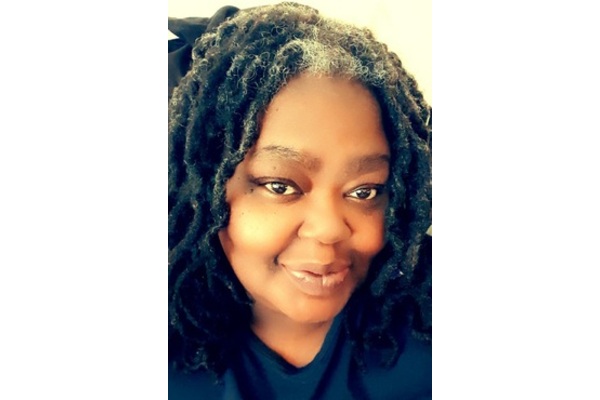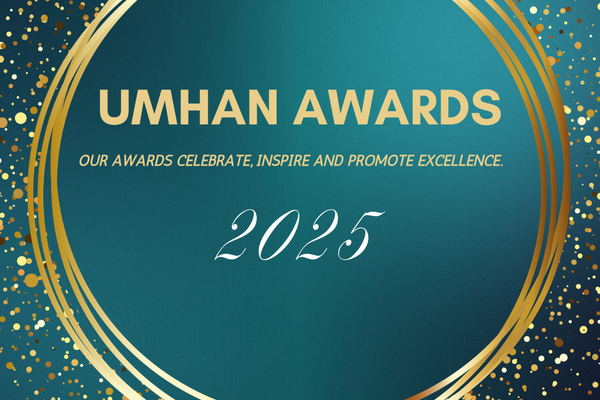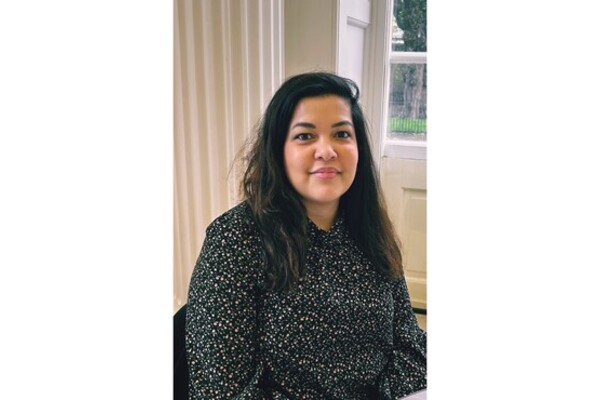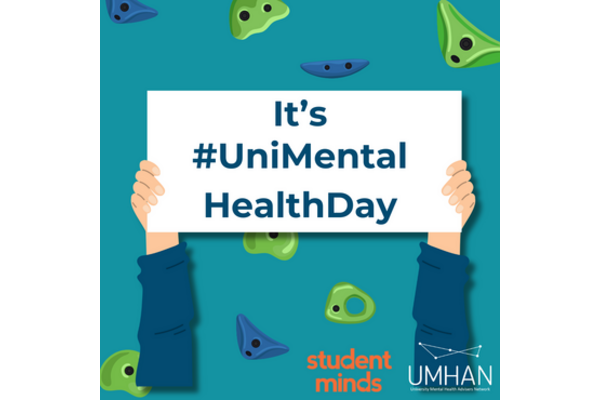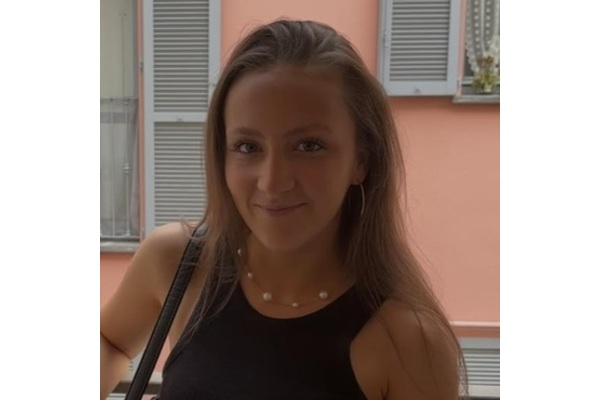Name
Hazel Edwards
Job title
Independent Specialist Mental Health Mentor
Employer
Randstad
How long have you worked in student mental health?
3 years
How long have you been in your current role?
Since October 2020
Can you outline your career and how you got to where you are today?
I have always worked with children and young people. I started as a childminder when I was in my 20’s. I have three sons and really enjoyed being able to work around my children and be home with them. After a few years, my middle son said ‘I don’t want to share you any more!’ so I went to work in a school in Birmingham as a teaching assistant and SENCO assistant, working with children on the SEN register for 11 years. I took over that department and ran it for a few years when my line manager retired whilst the school waited to get a qualified SENCO in. Unfortunately as I wasn’t a qualified teacher I couldn’t hold that position permanently. Throughout this time I began my counselling education and after being with the school for 20 years - due to health and family issues - I decided that although heart-breaking, it was time to resign. I went to Qatar to work in counselling for a while but came back to the UK as my youngest son was not enjoying being so far from his brothers.
I then started my counselling foundation degree in 2016 and that’s when I started at Place 2Be where I counselled children and young people. I was only supposed to be there for one year while training, but liked it so much I stayed for two before moving to Randstad last year.
How does your experience and training help you to do your job well?
The training helps with the process of working with people. But the experience helps you to feel and know when something is working or not quite working. In all the years I’ve counselled and worked with students I don’t find there is any harm in asking how they’re feeling about the relationship so far, usually after the first 3 weeks. Mentoring though is very different to counselling in that I can delve a little bit deeper when talking to the students. But like I say, the training that I’ve had, has helped me with the process - understanding what’s going on for people; and the experience helps me to talk to them. A lot of the experiences the students are going through, I’ve been through many of them myself. You don’t talk about that but you can say words that they can relate to.
Can you briefly explain your day-to-day responsibilities?
In the introductory session with a student we talk about what a mentor is, what the rules are etc. They know I’m there to build on their strengths, talk about things they can’t do as well as they’d like to, confidence building, any stress related issues they have - university related or not. Then I put a plan together for them with strategies to help with any issues identified. For example, for low self esteem, trouble sleeping - we’d look at strategies such as meditation, breathing and grounding exercises etc. The plan would differ depending on what mental health issues they have.
If a client presents to a meeting one day saying ‘I’m not in a good place I just want to talk’, then that’s what we do. My door is open when it comes to our sessions. There is no point forcing a session when a student doesn’t want to be there.
All sessions are booked up front, having agreed the days/times. But I always let the students know that they can cancel even up to an hour before if they need to. If I have a missed session with a student I will always give them a call after a day or two and just check up on them. It’s a wonderful relationship you build up with clients, they allow you to become a part of their world and that’s a privilege. I’ve not had any issues so far with working this way!
With regards to signposting, if I identify an issue I will ask the student’s permission to approach the relevant service. Unless it’s something very serious in which case it would be straight to who I need to go to. Randstad will always know if there is any safeguarding issue and when I report it to them, it will also be reported to a GP as well.
What’s helped you to stay in your role?
Randstad are very very good at giving you the clients! It is a fantastic place to work for. My consultant is brilliant and his team is really good too. I like the structure, the independence and working for myself, on my own terms. I also feel I’m being paid my worth which is a big thing. As well as that, I have the flexibility to work separately - I am currently developing my own counselling website and studying again, psychology with The Open University in order to get my honours degree.
What part has UMHAN played in this?
UMHAN saved my bacon! The DSA have a criteria that when you become a specialist mentor for Randstad you have to have membership with a professional body. I had an individual membership with the BACP but my foundation degree was not a BACP accredited course so I had to take a proficiency test to become a registered member within two years. But due to COVID I couldn’t get a slot until July 2021. My consultant said I can’t work until I’m on board with a professional body so suggested UMHAN. I’d never heard of UMHAN but looking it up on Google I really liked what I saw. The different aspects and approaches - I hadn’t seen anything like that before. It’s like a niche organisation and I think it’s brilliant.
I love the Lunch & Learns although am usually quite quiet in the those and other meetings because I’m just soaking everything up!
What’s your favourite part of your role?
As a 53 year old black, Afro-Caribbean woman born in Birmingham, I feel strongly that I didn’t have the advantages that some had when I was growing up as a kid in the 70’s. There was not enough done for working class people, I was told I was only ever going to be a hairdresser… and there is nothing wrong with that, but you learn that maybe I can do this or I can do that; and I love the power and the freedom that education and knowledge gives you. That is one of the things I love about what I do. I’m watching students blossom when they think they can’t get there and it’s a great feeling.
What has changed in student mental health since you started your role?
The main difference is moving from face-to-face working to remote due to COVID. It’s a different feeling, because you’re in an encapsulated space when working face-to-face. You feel secluded, just you and the client in this space. It’s more of a feeling than a thought or an actuality. Remotely you can sometimes get the same feeling but not often.
What do you think are the biggest remaining challenges?
A big challenge for me was keeping the processes separate - mentoring and counselling are very different. As a mentor, you’re helping them to achieve university goals and using counselling skills to help with their mental health issues but not therapizing them. The processes are very different and keeping those separate was difficult for me in the beginning.
Have you got any feedback from students that you could share with us?
The dedicated and continuous support I have received from Hazel has been my light at the end of a dark tunnel. Hazel’s guidance, knowledge and practical solutions has allowed me to truly understand my challenges with my mental health. Her approaches have given me tools that will help me for life. Out of the many tools Hazel has equipped me with, the most significant was metaphorically ‘putting things into boxes’ when managing several and different traumatic events. By addressing each traumatic event and ‘placing it into a box’ after addressing it, I learnt that each of my traumas, like a box, can be put away. Of course at times the box could reopen, but the knowledge that a box of trauma can be closed again has helped me overcome feelings of overwhelm and distress. Now whenever I feel overwhelmed by a traumatic flashback, I can address it using other tools Hazel has equipped me with and now I can put the flashback back in the box. I am confident anyone being supported by Hazel will greatly benefit from her support and develop tools in managing their mental health, like I have.
Thank you once again Hazel for your support. I am truly indebted.

